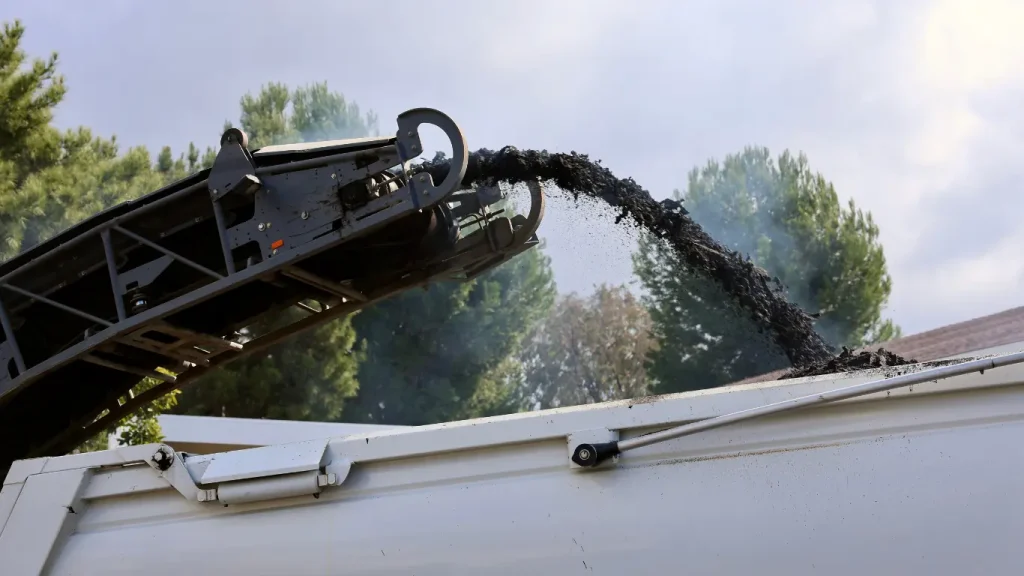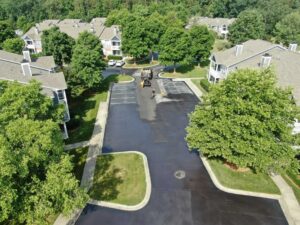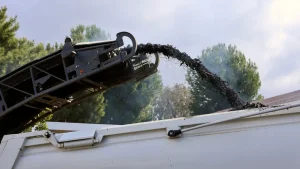Asphalt is durable, but it’s not indestructible. With time and weathering even the toughest surfaces can wear down. When it’s time for a repair, how do you decide whether to opt for a milling project or full depth reclamation? The severity of deterioration as well as the speed at which you address your pavement issues all factor into which method is necessary to restore your paved surface. In this article, we will discuss the two methods of pavement repair so you know which is best for your project.
After reading you will know:
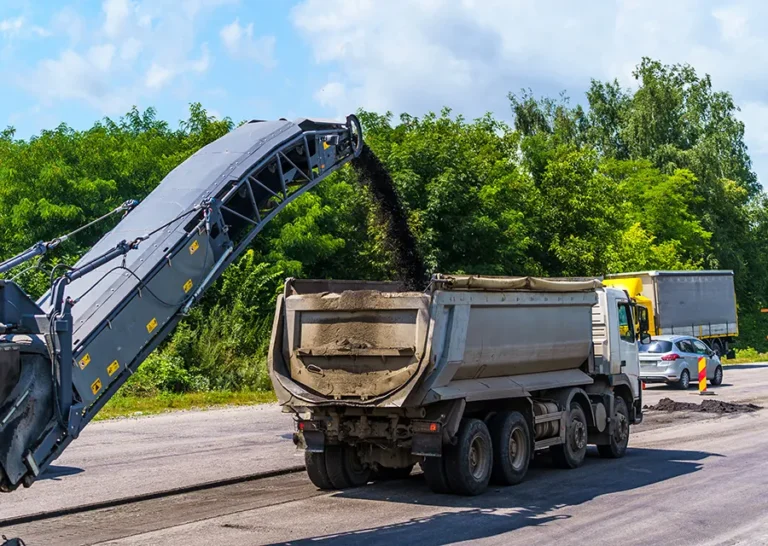
What is Asphalt Milling?
Asphalt milling is a method for resurfacing asphalt in which a milling machine grinds down the top layer of an existing paved surface. From there, a fresh layer of asphalt is laid to replace what was removed. Asphalt milling is an excellent solution for restoring pavement that is mildly or moderately deteriorated primarily at the surface level.
Milling is commonly used to revamp roadways and highways, and for large commercial projects where the majority of pavement is in good shape but the surface layer needs a bit of a refresh. Milling is also an ideal choice for the environmentally-conscious, as the removed material is hauled away and recycled.
Advantages of Milling:
- Minimally invasive
- Relatively simple
- Less costly than full depth reclamation
- Eco-friendly
- Ideal for pavement with mild to moderate damage
What is Full Depth Asphalt Reclamation?
Full depth reclamation is much more involved than milling. During the process, the full depth of asphalt and a set portion of underlying materials are pulverized and mixed to produce a base layer to pave on top of. The result is an extremely stable and resilient surface where new asphalt can be paved.
Full depth reclamation is an ideal solution for old, severely damaged surfaces including parking lots, roadways, and more. While the process is naturally more time-consuming and expensive than a simple milling project, it provides a sound, long-lasting result. When you opt for a full depth reclamation, you most likely won’t have to worry about major repairs on your surface again for years.
Additionally, full depth reclamation is regarded as one of the most environmentally friendly construction processes available today. That’s because the method involves recycling and resetting paving materials in place, which greatly reduces waste, emissions, and the costs associated with moving trucks and hauling materials.
Advantages of Full Depth Asphalt Reclamation:
- Completely refreshes and replaces old, worn-out surfaces
- Offers a durable, long-term result that will last for years
- One of the “greenest” construction methods on the market
- Perfect solution for significantly deteriorated paved surfaces
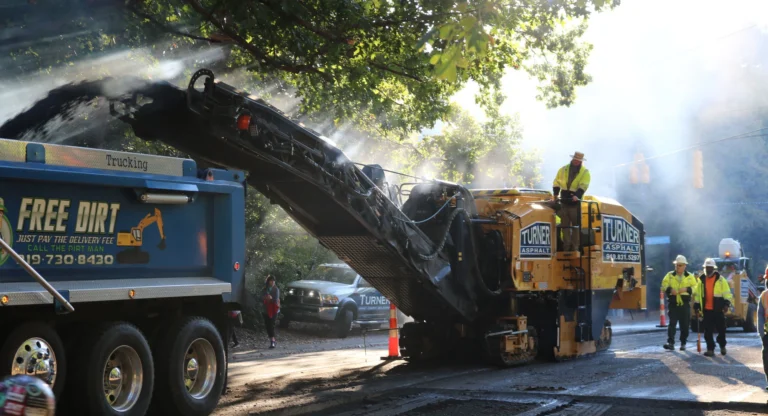
Which Asphalt Repair Technique is Right for Your Pavement?
You may be wondering which method of pavement replacement is best for you. Here are some factors to consider as you make that decision.
The Condition of Your Asphalt Pavement
If most of your asphalt defects lie at the surface level, milling is most likely the best option. Milling is a cost-effective and less intrusive solution for paved surfaces with mild to moderate flaws such as minor cracks and unevenness.
If your asphalt pavement shows signs of significant wear and tear including alligator cracks, potholes, or an unstable base, it’s best to opt for a full depth reclamation.
Your Pavement Repair Budget
Because it is a less involved procedure, naturally, asphalt milling is much less costly than full depth reclamation. However, it’s important to note that milling is often a shorter-term solution, especially for significantly deteriorated pavement. Full depth reclamation requires a large upfront investment, but the result is a durable surface that will last for years.
Desired Outcome
Asphalt milling will improve the appearance and smoothness of your paved surface. It will eliminate minor cracks, flaws, and annoyances and prepare the surface for a new layer of pavement. However, it is a short-term fix that will likely only provide a few years of relief before it is needed again.
Full depth reclamation will essentially make your surface new again. This long-term solution addresses underlying structural problems and delivers a stable new road foundation.
Environmental Impact
If you or your organization are concerned about your environmental footprint, rest easy knowing that both milling and full depth reclamation are considered “green” practices. However, if you are hoping to significantly reduce your impact on the environment, it might be wise to select full depth reclamation. This is considered one of the most environmentally friendly paving methods available today.
The Bottom Line
Be sure to consider what the ultimate goal for your surface is before committing to either milling or full depth reclamation. If you still aren’t sure which one is for you, start a conversation with us. We’re happy to discuss your options and help you make an informed decision for your surface.
Ready to Tackle Your Pavement Milling or Full Depth Reclamation Project?
Regardless of whether you choose milling or full depth reclamation, you’re going to need a skilled and experienced team to help you execute your project. Choose Turner Asphalt as your dedicated project partner. We provide premier paving solutions for commercial and residential properties across the Southern Atlantic coast including the Carolinas, Tennessee, Georgia, Virginia, and Florida.
We offer quality asphalt repair services including milling, full depth reclamation, patching potholes and other surface-level flaws, and even infrared patching Get in touch with us today to start your project together.

